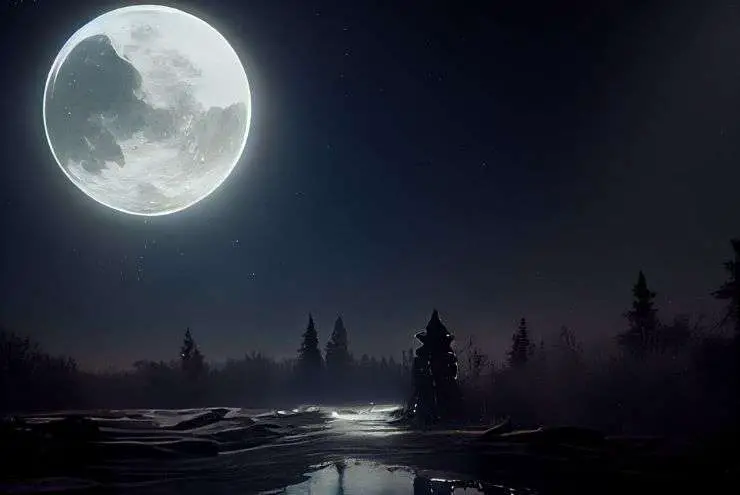You may be surprised to find out that bees are like humans in many ways, and this includes their nighttime behavior. While they may not throw on a pair of flannel pajamas and cozy up with a nice book, most bees do make sure to get in a good night’s sleep each night.
Honeybees, the bees you are most familiar with, are known as diurnal. Diurnal is a type of behavior in which a species is active during the day with periods of rest during the evening. Like bees, humans are a diurnal species – with the exception of night owls and insomniacs! So, when it comes to getting in their beauty rest, where do bees go at night? Let’s get into it!
Where Do Bees Sleep at Night?
With over 20,000 bee species, it’s a bit all over the place on where bees sleep. You may understandably assume it would be the hive for all bees, but that’s not entirely accurate. We’ll discuss a few places you may encounter a sleepy bee.
· Beehive
· Flowers
· Branches
· Porch/Deck
Beehive
Honeybees are known to settle in for the night in their beehives. The age and role of the bee plays into where in the hive the bee sleeps.
Young worker bees are found resting inside cells that are situated near the center of the nest which provides a warm atmosphere. Older bees prefer a bit cooler environment, and they call it a night outside cells further from the center.
Flowers
Imagine two bees cuddled up, napping in a flower, on a warm Spring day. There is a very special kind of bee species (Diadasia diminuta) who do just that as they drift off to sleep in a cozy, orange Globemallow flower. Because of this bee’s fondness for the vibrant flower, this type of bee is commonly referred to as a “globe mallow bee.”
It is not just the globe mallow bee who sleeps in flowers, though. Bumblebees are also known to rest in flowers (particularly male bumblebees). They will find flowers like lamb’s ear, lavender, and squash blossom. The flowers in your garden may just act as an air BeeNBee – free of charge.
Honeybees are known to take quick, power naps in flowers throughout the day. However, this is usually a sign of sleep deprivation, which is not good for these foragers. (We’ll delve more into that later.)
Branches
There are some bees that live and work and sleep independently. These free bees, known as teddy bear bees (Amegilla bombiformis), aren’t picky when it comes to where they sleep. You can think of them as the nomads of the bee world. For them, they find a nice branch, take a bite out of it, and that’s their room for the night. They are pretty low maintenance.
Porch/Deck
Not surprisingly, carpenter bees sleep right where they work. These pesky, troublesome bees usually rest up in nests they have made by burrowing into your porch or deck.
Are Bees Active at Night?
Yes and no. As discussed before, there are tens of thousands of different types of bee species, so the activity varies depending on just what type of bee they are. There is even a type of bee who is nocturnal!
· Honeybees
· Bumblebees
· Nocturnal Bees
Honeybees
Remember that new word, diurnal, we learned earlier? Honeybees stick to being active during the day, but it’s important they get in quality sleep time. These bees are known to sleep throughout the night. The younger bees’ sleep duration is similar to humans as in some of these foragers get up to 8 hours of rest each night.
Bumblebees
Similar to honeybees, bumblebees also head to their homes once daybreak hits. It’s important for these bees to get adequate rest, just as it is for the majority of bee species. However, there are rare occasions when you will hear a buzzing at night from these bees. If you see them flying around lamps or streetlights, this a bad sign that they may have been infected by what is known as a “Zombie Fly.” If this happens, it is not likely the bee will survive, as it is not natural for them to be using energy in the evenings for meritless tasks.
Nocturnal
If someone wanted to know if there are bees out at night, you could tell them there are rare exceptions. Believe it or not, there is a nocturnal bee, foraging in the wee hours of night! The Indian carpenter bee is the exception in the bee kingdom when it comes to its sleep pattern. This bee is the most active at night, and it gets it rest while the other bees are working in the heat of the sun.
Wondering if bees are active at night is a valid curiosity, and the answer is “overwhelmingly no” with the few, rare exceptions.
Are Bees Out at Night a Normal Occurrence?
You’ve heard how important quality sleep is for optimal health. It’s no different for the majority of bees. While some bees are out at night, it’s typically not a good sign for them – apart from rarer bee species like the Indian carpenter bee. This
Bees require a substantial amount of shuteye each night, too. (Ironically, bees don’t have eyelids, so technically – they can’t shut their eyes, but you get the point!) Most bees, if they don’t get quality sleep, have serious impacts on not just their well-being, but the survival of the colony as well. You may also be wondering if bees can fly at night? The answer is yes they can, however, they have a hard time navigating in darkness, so most do not fly at night.
Work Interference
It’s important this sleep happens at night, otherwise they will be sleeping more throughout the day – leading to these bees attempting to forage at night. While foraging at night may not seem like such a big deal, it doesn’t work out so well for our bee friends. Many flowers aren’t available during the evening hours, and the bees, in turn, will be much less successful at getting their much-needed resources. This lack of product has a devastating impact on the materials needed for the colony.
Sleep Deprivation
Similar to humans, bees can experience a severe decline if they don’t get good, quality sleep. It’s been shown that bees will experience memory impairment, cognitive decline, and move slower – resulting in longer foraging trips. Yes, bees experience sleep deprivation.
This overall cognitive and physical impairment can lead to bad dance moves for honeybees. While it may be embarrassing for humans to have two left feet on the dance floor, dancing for worker honeybees is vital to their very survival. Dancing is how they communicate directions and locations to other bees. Poor sleep is known to result in poor dancing for both humans and bees!
So, Where Do Bees Go at Night?
Well, most go to bed! This could be their hive, a nest, or nestled in a flower. There are a few exceptions like the Indian carpenter bee or bees who are infected by a Zombie Fly, but most bees simply go home to rest up. Where bees go at night has everything to do with what type of bee they are.
As we have learned, the diurnal honeybee goes back to the beehive at night, along with the rest of their colony. There are some bees you will see at night, but this is certainly not considered the “norm”. You are also more likely to see bees at night in more tropical regions, as a large reason bees go to the hive or nest at night is to remain warm!
Bees and Sleep Cycles
If bees put on a FitBit, their sleep patterns may reveal sleep cycles similar to humans. Research has shown that bees typically have a lighter period of sleep followed by a shorter, deeper sleep period. It makes you wonder if they have a REM cycle and dream about copious amounts of honey and flowers!
F.A.Q
Bees head back to their dwellings shortly before sundown. Bees can’t see well in low lighting, so they try and get back to their respective homes before it gets too dark.
It all depends on the kind of bee to know where bees go to sleep at night. Honeybees call it a day at their hives, some bees find a nice flower to sleep in, and others prefer nesting up in a piece of wood.
Honeybees do return to the hive at night! Fortunately for these buzzy bodies, their hive provides the perfect sleeping environment for them. Where in the hive honeybees sleep depends on their age and role in the colony.
Bees can sting at night, but don’t expect that to happen unless you mess with a sleeping bee. Bees remain largely inactive at night, so the chance of you seeing and getting stung by a bee at night is rare. Just be sure to watch where you put your hands and keep an eye out for bees infected by Zombie Flies, and you should be okay!

